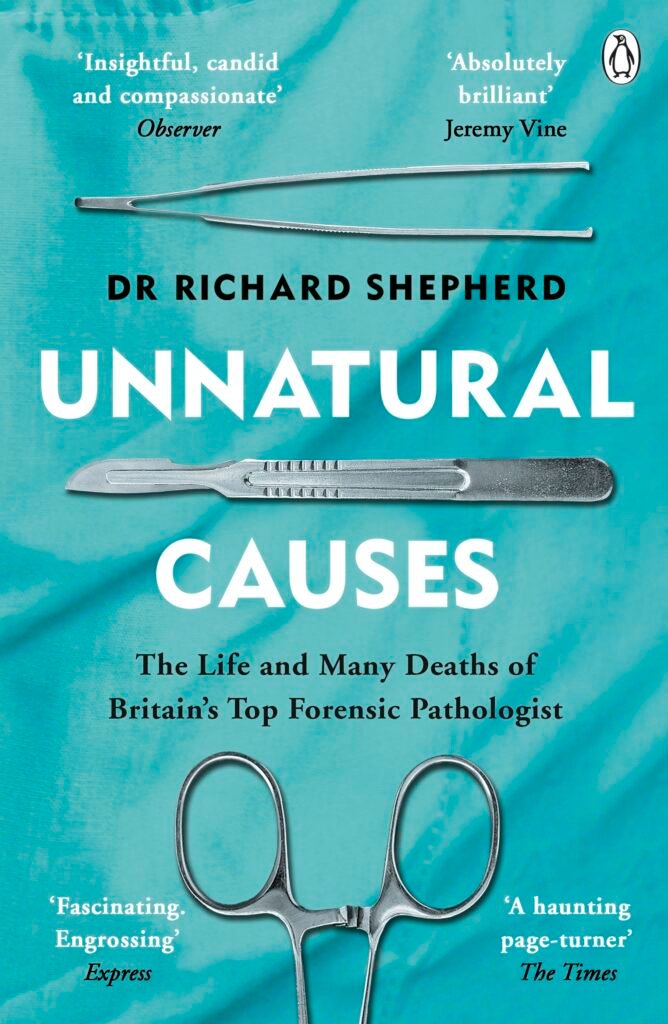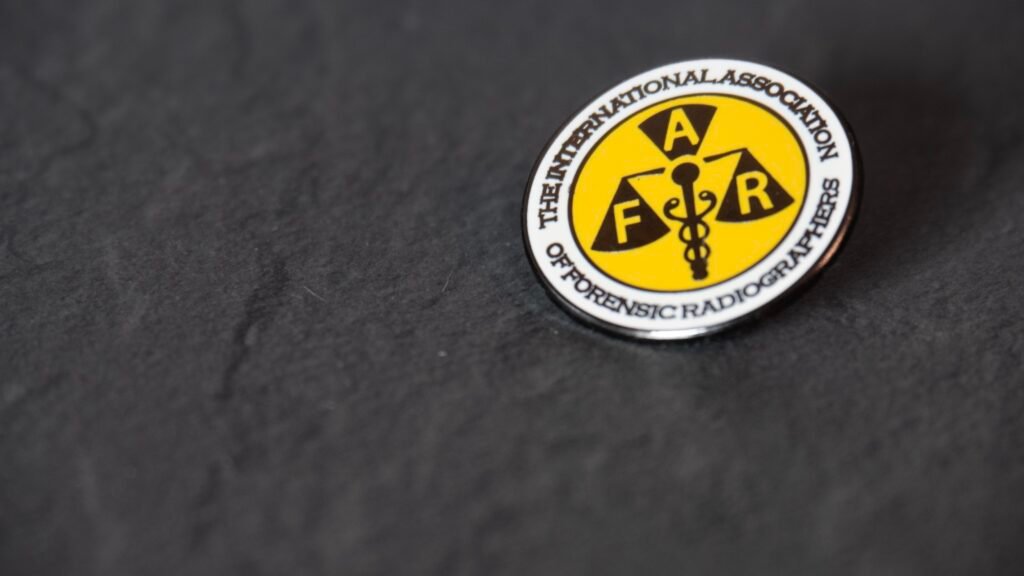
About the Author
Dr. Richard (Dick) Shepherd is a leading forensic pathologist in the UK, with vast experience of numerous murder investigations and mass fatality incidents – he estimates that he has conducted in excess of 23,000 post-mortem examinations in his career.
Dr. Shepherd has worked on a number of high-profile cases including the 9/11 terror attacks, the Bali bombings and the deaths of Stephen Lawrence and Diana, Princess of Wales.
He has also appeared on the UK Channel 5 programme Autopsy, where he investigates the mysteries surrounding the deaths of high-profile celebrities, including Michael Jackson and Whitney Houston.
Book Review by Paul Hunter
This book is provides a combination of both an educational insight into forensic pathology and personal account of how Dr. Shepherd’s career as a forensic pathologist has had a impact on his life. He explains how death has always been a part of his life from a very early age and how he managed to achieve his ambition of becoming a leading forensic pathologist, shaped by his admiration of Prof. Keith Simpson. The book is very easy to read and often very difficult to put down!
Throughout, Dr. Shepherd gives the reader an education in the various aspects of forensic pathology, including the process of death and decomposition, wound pathology, the forensic analysis of stab wounds, the identification of self-inflicted injuries and dealing with cross-examination in court. Ultimately, he exerts his true role as a forensic pathologist: as a seeker of the truth.
In addition to his transfer of knowledge, Dr. Shepherd holds the readers interest through discussion of a number of high-profile death investigations, such as the murders of Rachel Nickell and Stephen Lawrence and his role in the investigation of numerous mass fatality incidents, including the Marchioness disaster, the Clapham Junction rail Disaster, the 9/11 terror attacks, the Bali and 7/7 London bombings. He also gives his own personal findings and opinions from the investigation into the death of Diana, Princess of Wales – one that is often of great interest to conspiracy theorists.
Dr. Shepherd also openly discusses how his career affected his personal life in a number of different ways. He explains how his dedication to work ultimately affected his marriage, how a couple of high profile cases raised doubts about his professional reputation and exactly how much his vast experience with death would have on his own psychological welfare.
The opening chapter of the book begins with Dr. Shepherd describing the feelings he experienced when flying over the area of Hungerford – the scene a mass killing many years prior and his first case as a forensic pathologist. This is where he began to realise how his years of work dealing with death had affected his own mental health and how Post-Traumatic Stress Disorder (PTSD) can affect even the most experienced practitioners. He continues to make reference to this throughout the book, explaining how he would test his theories of knife wounding on the Sunday roast or bedroom pillows and how the simple addition of ice cubes to a drink took him straight back to the images of decomposing bodies at the temporary mortuary in Bali from years earlier. It is a very humbling and important message that is portrayed and one which all forensic practitioners should be aware of.
The only minor disappointment of the book is the lack of reference to the use of radiographic imaging in forensic investigation. However, this may be simply be due to the fact that imaging was not routinely used as part of death investigation during this time. It would be interesting to know Dr. Shepherd’s views on the role of imaging in forensic investigations and how this may have supported some of his previous cases.
Nonetheless, this is a truly excellent book that will be enjoyed by anyone with an interest in forensic pathology and the death investigation process. It also highlights the importance of how working within such an environment can affect affect anyone psychologically, no matter what their role or experience.
Book Review by Nikki Emery
I read this book on holiday and found that I could not put it down. Dr Shepherd is a top forensic pathologist and has worked on a variety and huge number of renowned cases. These include mass disasters such as the Marchioness, serial murderers such as Harold Shipman and numerous SIDS cases to name just a few. What struck me about this book is the care and love he has put into his work over the years. His love and compassion for his own family, but also his own upbringing and how this shaped him and possibly influenced his decision to become a forensic pathologist. In fact he almost certainly exhibits signs of ‘the wounded healer’. His search for answers and determination to carry out his job professionally and with great care is very clear. Also the effects this had on his own mental health and family life is quite devastating. The final page brought me to tears when a detective he was working with said how much he admired him because he cares. I was completely fascinated in his work and anyone who has an interest in this subject would enjoy this book.

